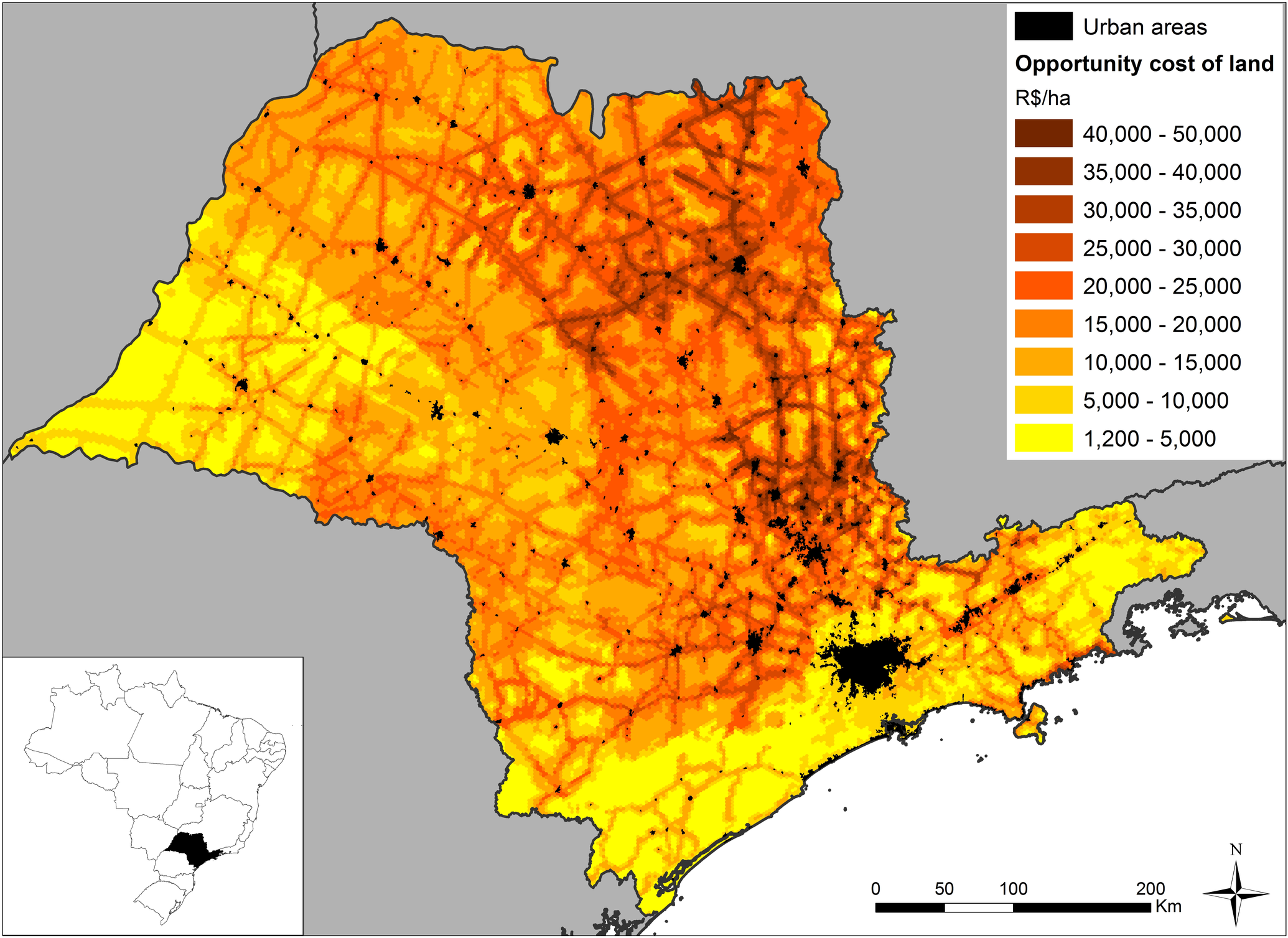Abstract:
The recently launched Brazilian “forest certificates” market is expected to reduce environmental compliance costs for landowners through an offset mechanism, after a long history of conservation laws based in command-and-control and strict rules.
In this paper we assessed potential costs and evaluated the cost-effectiveness of the instrument when introducing to this market constraints that aim to address conservation objectives more specifically. Using the conservation planning software Marxan with Zones we simulated different scopes for the “forest certificates” market, and compared their cost-effectiveness with that of existing command-and-control (C&C), i.e. compliance to the Legal Reserve on own property, in the state of São Paulo. The simulations showed a clear potential of the constrained “forest certificates” market to improve conservation effectiveness and increase cost-effectiveness on allocation of Legal Reserves. Although the inclusion of an additional constraint of targeting the BIOTA Conservation Priority Areas doubled the cost (+95%) compared with a “free trade” scenario constrained only by biome, this option was still 50% less costly than the baseline scenario of compliance with Legal Reserve at the property.
Read the article

Fig 1. in article. Distribution of opportunity costs of conservation in São Paulo.
Opportunity costs of land varies from R$5,000 (lighter) to R$50,000 (darker) R$ per hectare in São Paulo,
based on prices for cleared land. It was used as the cost criteria in the simulation.